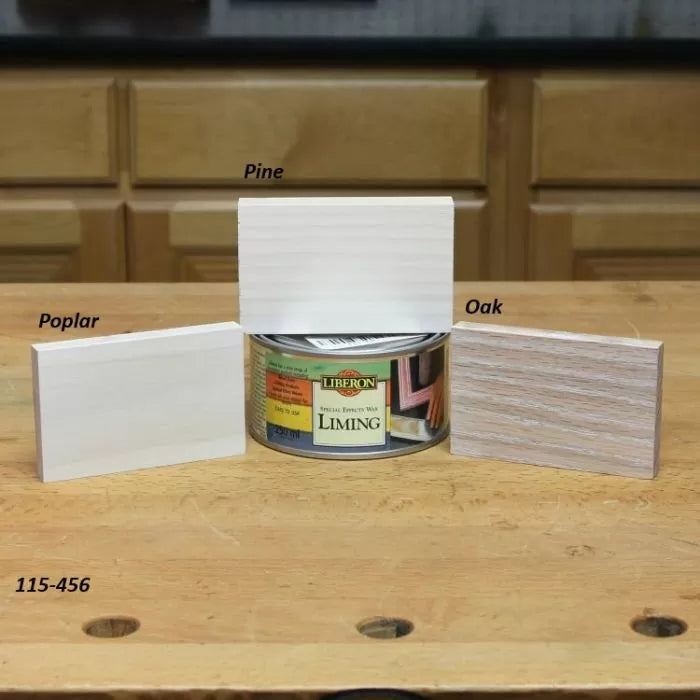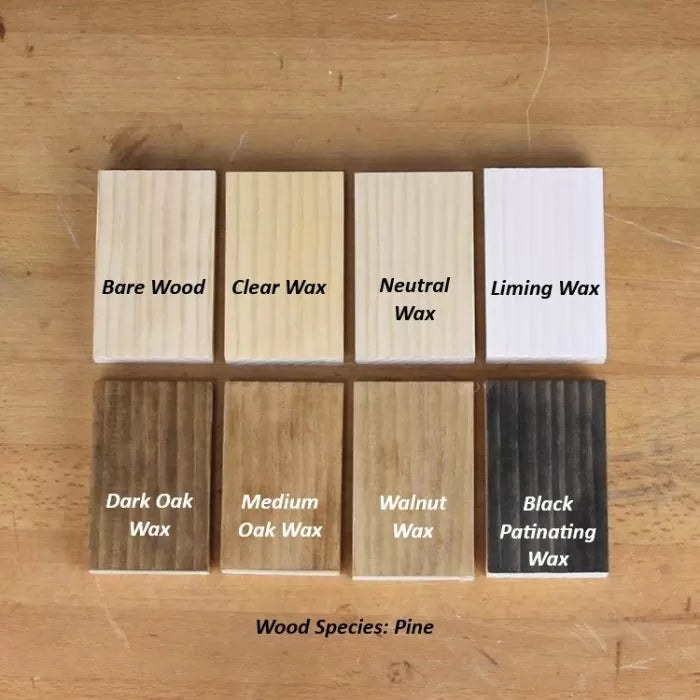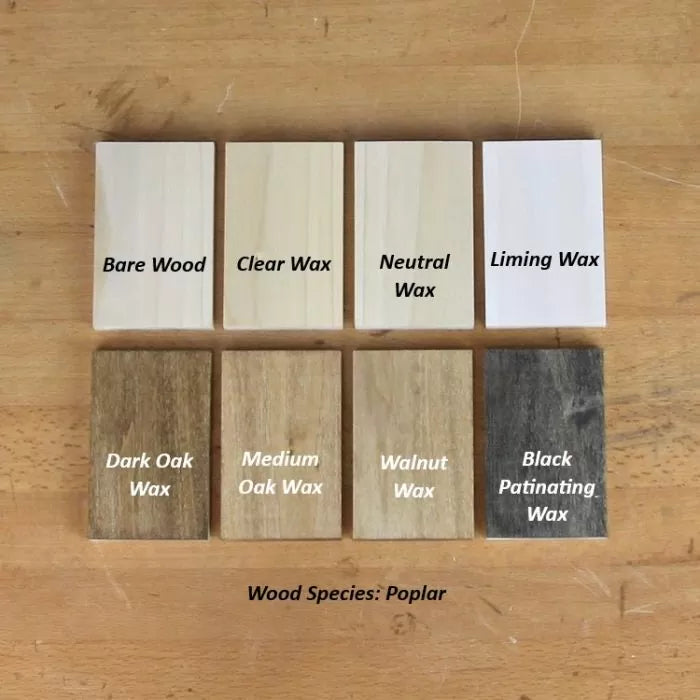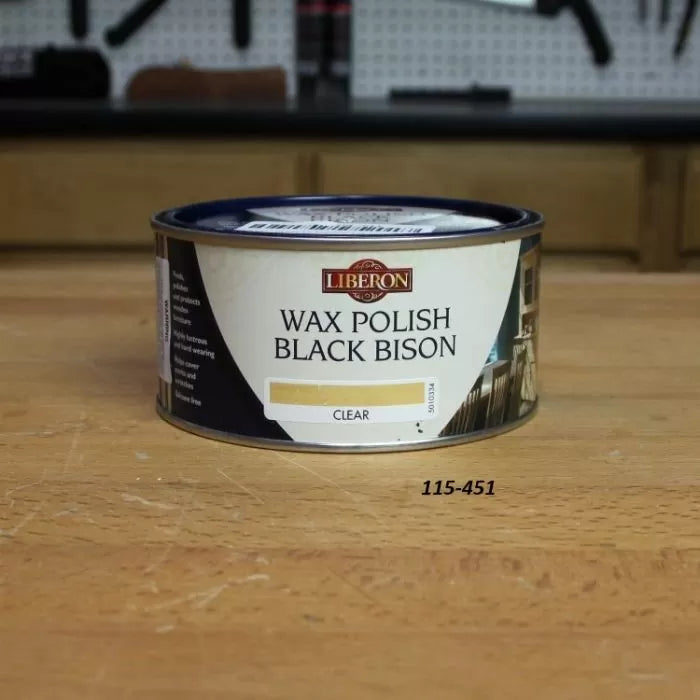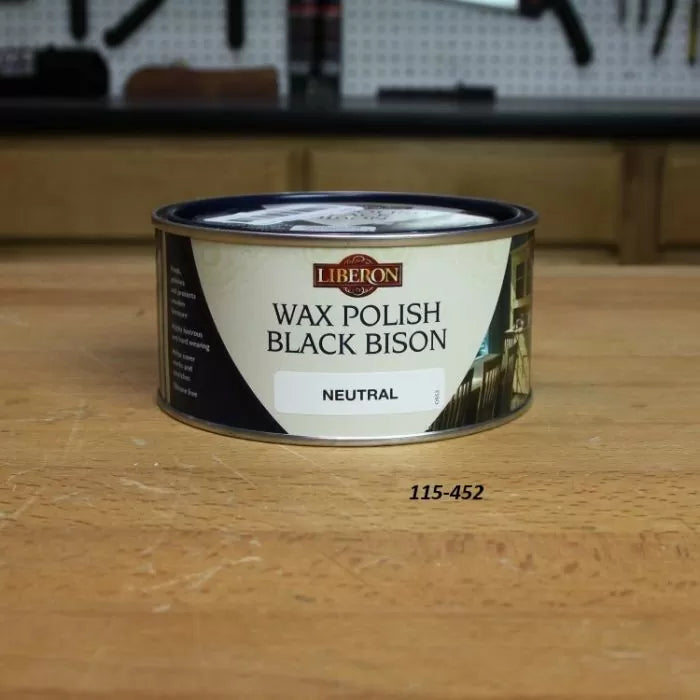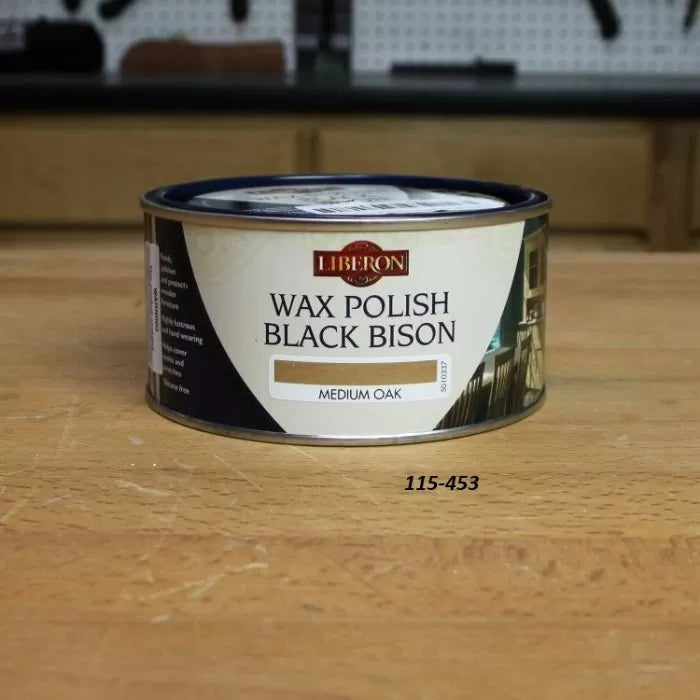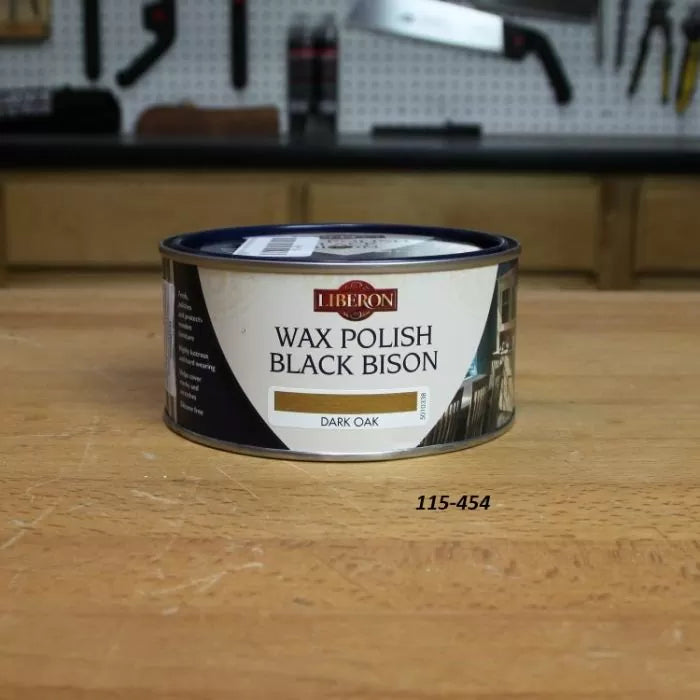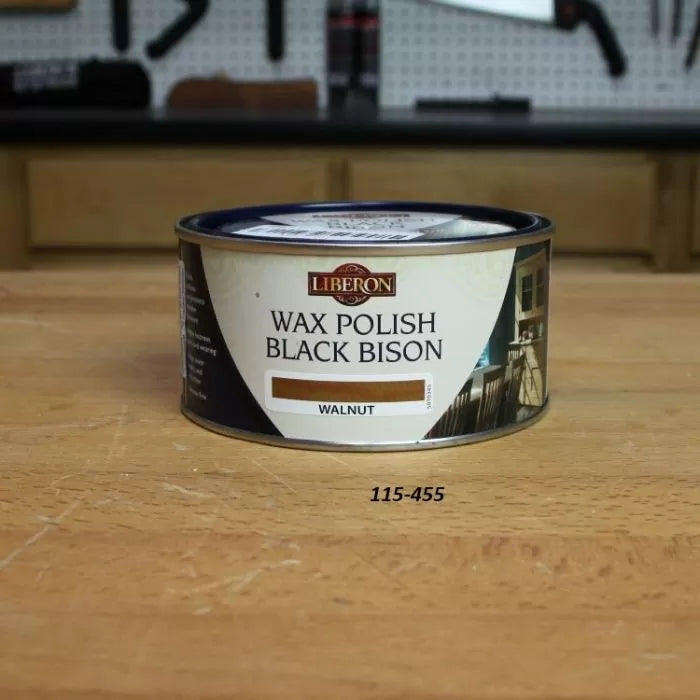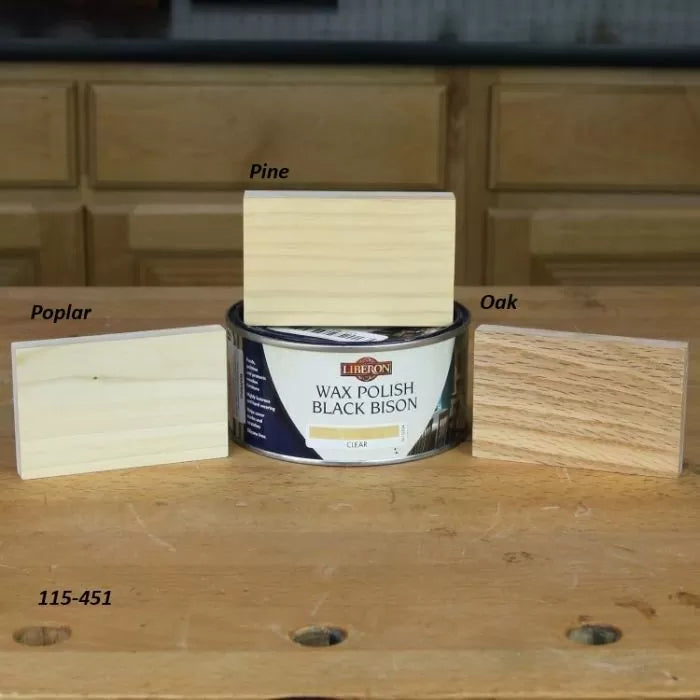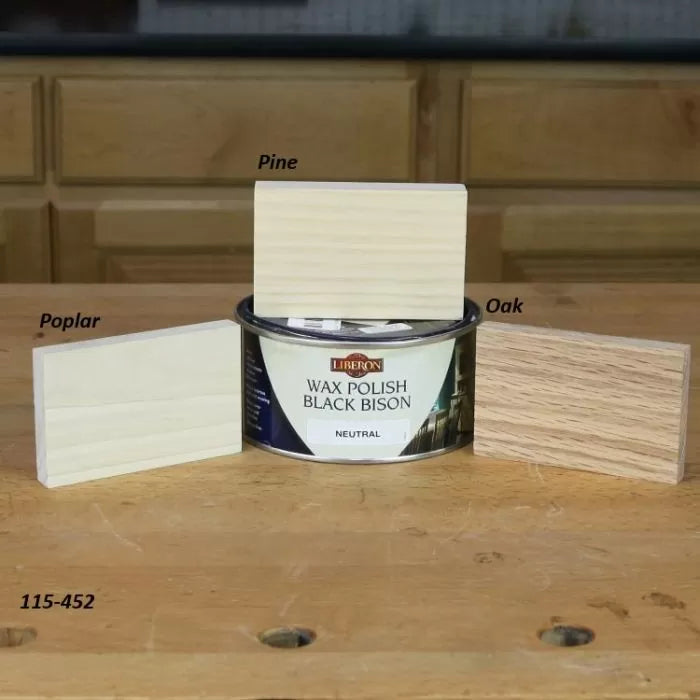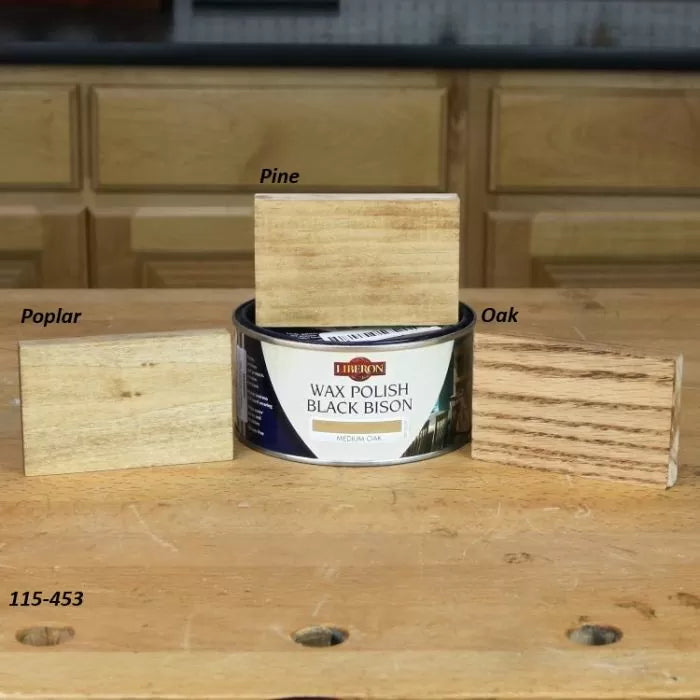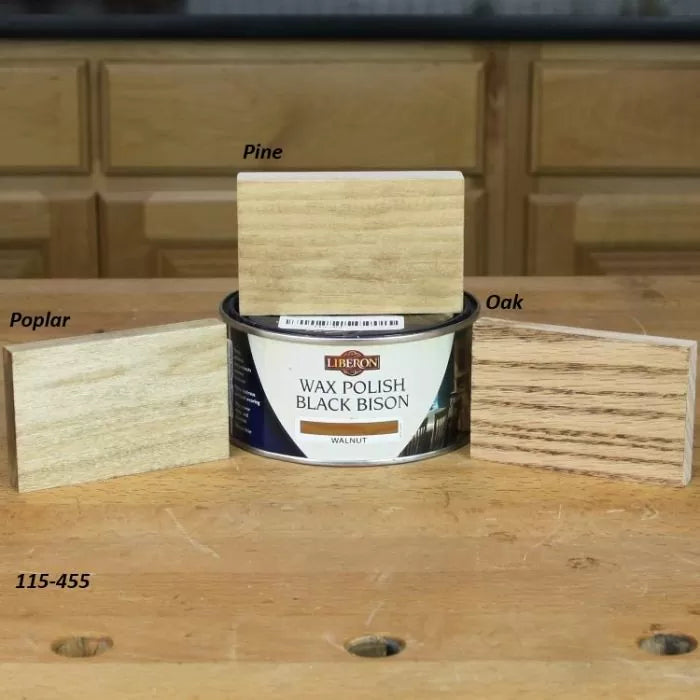Many people think only of the big yellow tin available at the local big-box store when considering paste wax. It’s often seen more as a furniture maintenance product than a wood finishing product. Paste wax certainly can be used for nourishing and revitalizing dry or dulling wood furniture, but its uses don’t stop there. Paste wax can also be used as a stand-alone finish on woodwork that will only see gentle use or as a nearly universal coating on top of other types of finish. It combines exceptionally well with penetrating oil finishes such as Danish oil, tung oil, or linseed oil.
Founded by Georges Libéron in Paris, France, in 1912, Liberon has been producing some of the finest wood finishing and care products ever since. Liberon Black Bison Paste Wax came into being during the 1950s when post-WWII shifts in domestic life created consumer demand for easier to use, better-performing furniture care products. Liberon Black Bison was quickly adopted by professional craftsmen and antique restorers and soon made its way to wider audiences, becoming a sought-after benchmark amongst competing paste waxes. The titular black bison symbolizes “la résistance, la robustesse” (resistance and robustness). It is an animal emblematic of an ability to work against the grain or in harmony thereto. Compared to modern finishes like Polyurethane, waxes are not known for extreme durability. Still, among wax finishes, Liberon Black Bison Paste Wax is one of the hardest-wearing we have come across.
Features:
- Seven Of The Most Useful Varieties - the breadth and depth of Liberon’s product line can be overwhelming, so we’ve whittled our offering down to those we’ve found most useful around the shop.
- Clear and Neutral – Use to preserve the unfinished character of the wood or provide subtle additional sheen on top of an existing finish. "Clear" gives a slightly glossy luster and a very subtle amber tint, while "Neutral" provides a satin look, but leaves the character of the wood virtually unchanged.
- Medium Oak, Dark Oak, and Walnut – Use to darken and enhance depth on darker wood species or to renew faded woodwork. It's best to use a darker wax on darker wood. Any Liberon wax will provide light duty protection and polish, but as clear or neutral waxes age, their residue will lighten in the grain requiring renewal more often.
- Liming Wax – Use to produce a liming effect on hardwood by working into the softer parts of the grain or for a whitewashing effect on softwoods. Liming wax is especially striking when applied to oak.
- Black Patinating Wax – Equally useful on wood or metal to create an aged effect. This wax is also excellent at disguising repairs, darkening a project, and drawing attention to intricate details in carvings and the like.
- Virtually Universal Finish – Can be used on bare wood for projects that will only see light use, or over most other existing finishes (including lacquer and French polish) to enhance your project and add luster.
- Excellent Finishing Polish for Detailed Carving and Turning Projects – silicone-free and safe for use on toys
- Lightweight Durability and Added Beauty - Feeds and polishes wood whilst protecting against dryness; good resistance to finger and water marks; helps cover marks and scratches
- Endorsed by the Guild of Master Craftsmen
To apply Liberon Waxes we recommend Liberon #0000 Ultrafine Oil-Free Steel Wool (102-551 and 102-552). All steel wool is not created equal. Liberon steel wool has longer fibers creating a more even scratch pattern, and goes through a post-production treatment to remove residual oils from the manufacturing process, so no contaminants are left behind on your workpiece.



